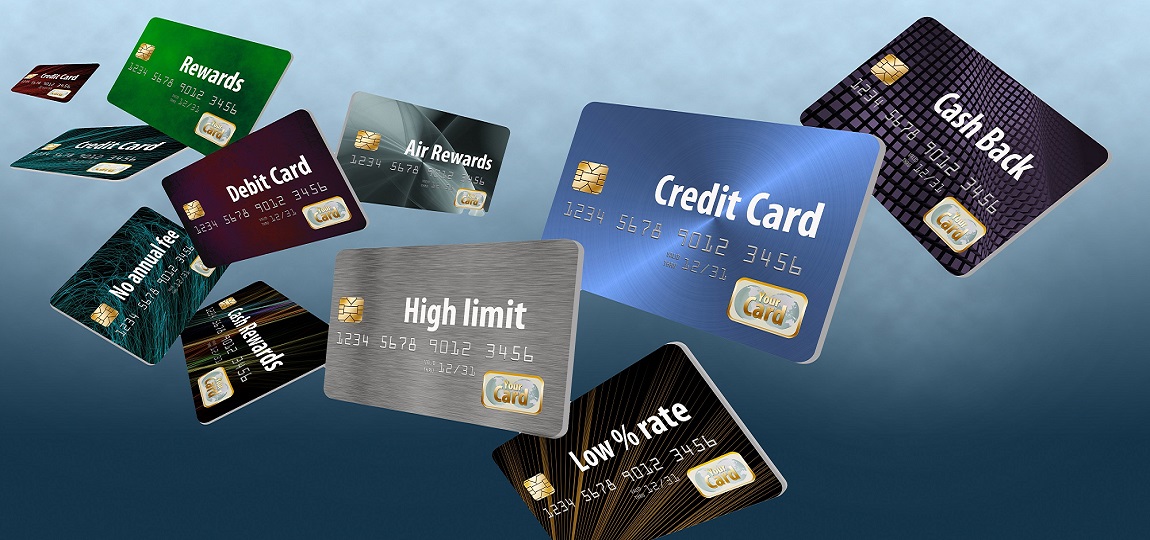It is difficult to imagine a world without debit cards and credit cards. Yet, these items we view as staples of life are barely 70 years old. The first charge card was the Diners Club card, issued in 1950. In the years since, credit card usage has burgeoned into a multi-billion dollar industry. Today, over 1 billion Americans have a credit card and there are more than 40 billion credit card transactions in the U.S. each year.
There are now a variety of credit card options available – so many in fact, that it can become overwhelming to compare different offers to find the best card for your financial situation. Here are some things to consider to help narrow down your search.
A Card for Every Purpose
Credit card providers have created a seemingly endless stream of card options and plans. The major credit card networks include Visa, Mastercard, American Express, and Discover. However, even if you narrow it down to one of these, you’ll still have to choose a credit card issuer, and an individual type of card.
The card you choose should fit your unique personal situation. Before choosing a credit card to apply for, consider what types of cards are available to you. Your options include:
• Credit cards for those with bad credit or no credit – these cards are typically easier to get approved for than a traditional credit card and allow you to build or establish credit, or improve your credit score
• Low-interest credit cards
• Credit cards that allow you to earn travel points, cash back, or rewards
• Credit cards with no annual fee
• Credit cards that offer a sign-up bonus or incentive
• Credit cards that offer no interest on balance transfers – these cards could be a good option if you’re looking to consolidate your credit card debt and transfer high-interest credit card balances to a new card
Once you have a good understanding of what features are important to you, you can focus your search on the credit cards that offer them. The good news is that there are many websites that make it easy to find and compare credit cards based on what they offer.
Your Credit Score: Gateway to Card Options
Before you apply for a new credit card it is helpful to get an idea of where your credit stands. This can help you understand which cards you could qualify for, and help you ensure that there are no errors in your credit report. In the U.S., you are able to pull your credit report every 12 months for free through AnnualCreditReport.com. Bank5 Connect customers can review their TransUnion credit report and VantageScore credit score at any time through their online banking account. By knowing your credit score ahead of time, you can refrain from applying for cards that require a higher credit score than you have. This can help prevent you from racking up unnecessary credit inquiries for credit card applications that will likely be declined.
Every card issuer wants to evaluate your ability to repay your credit card balance. That means your creditworthiness is an important factor in determining which cards you will qualify for. Your credit score is the most dominant measure of your credit standing and is determined by things such as your payment history, outstanding credit card and loan balances, length of credit history, number of recent credit inquires and credit mix.
When you apply for a new credit card, the issuer will check your credit to determine if you qualify for the card and if so, what your credit limit will be. If you have no credit or bad credit, it’s still possible to find cards that will fit your situation. Likewise, if you hold off on applying and take some time to improve your credit score, you can expand the card options available to you.
Making Your Choice
Although it can seem like there are endless credit card choices, taking the time to weigh your options and compare cards will help you narrow things down and find the one that’s right for you. Ultimately, no matter which card you end up choosing, you should exercise smart credit card usage to make sure that you don’t wreak havoc on your financial wellbeing. Unlike debit cards, where you generally can’t spend more money than you have, credit cards can make it easy to rack up significant debt. But by keeping track of your credit card spending, paying off your balance in full whenever possible, and paying your credit card bills on time, you can harness the flexibility and convenience of your credit card without getting yourself into financial trouble.
